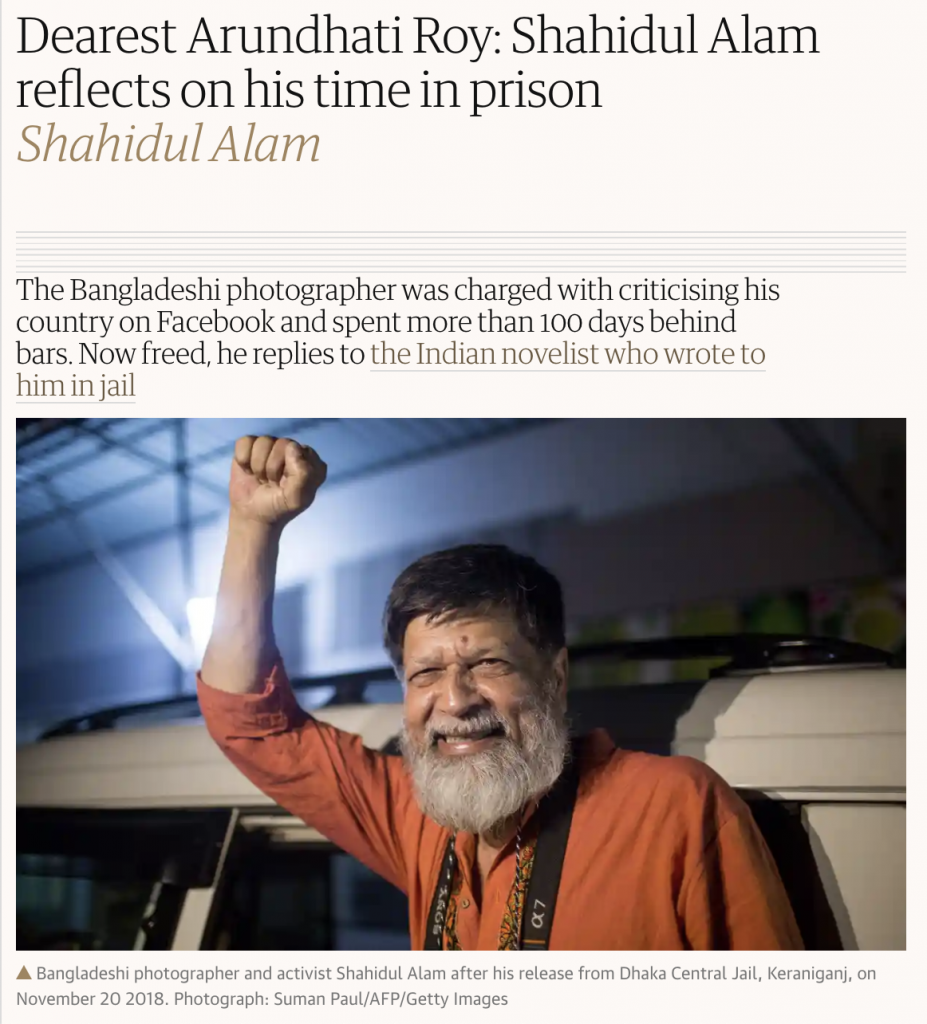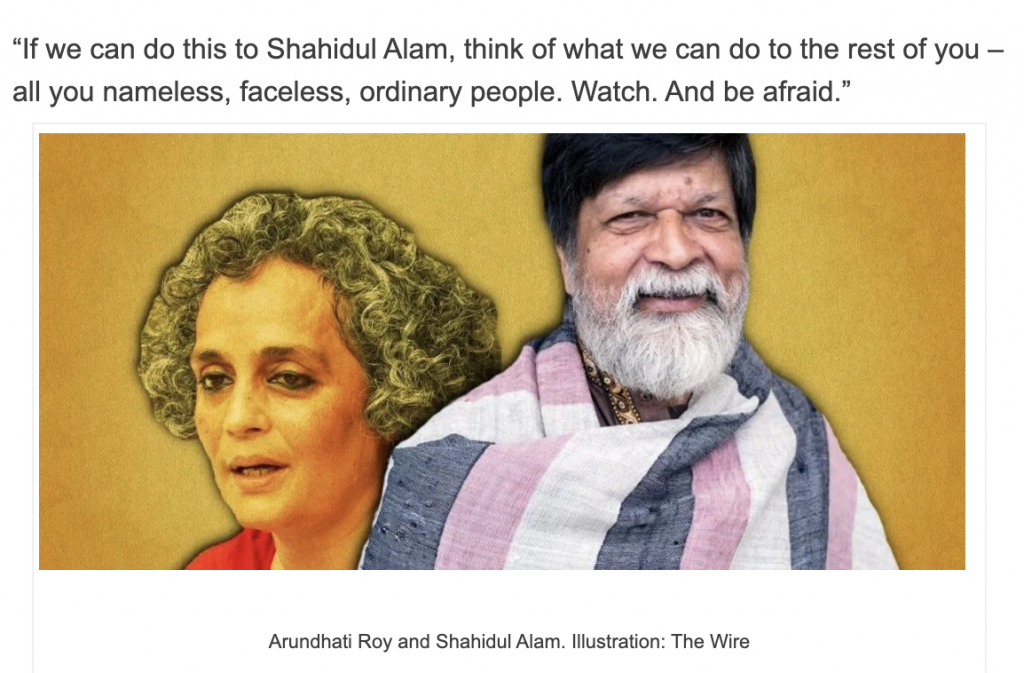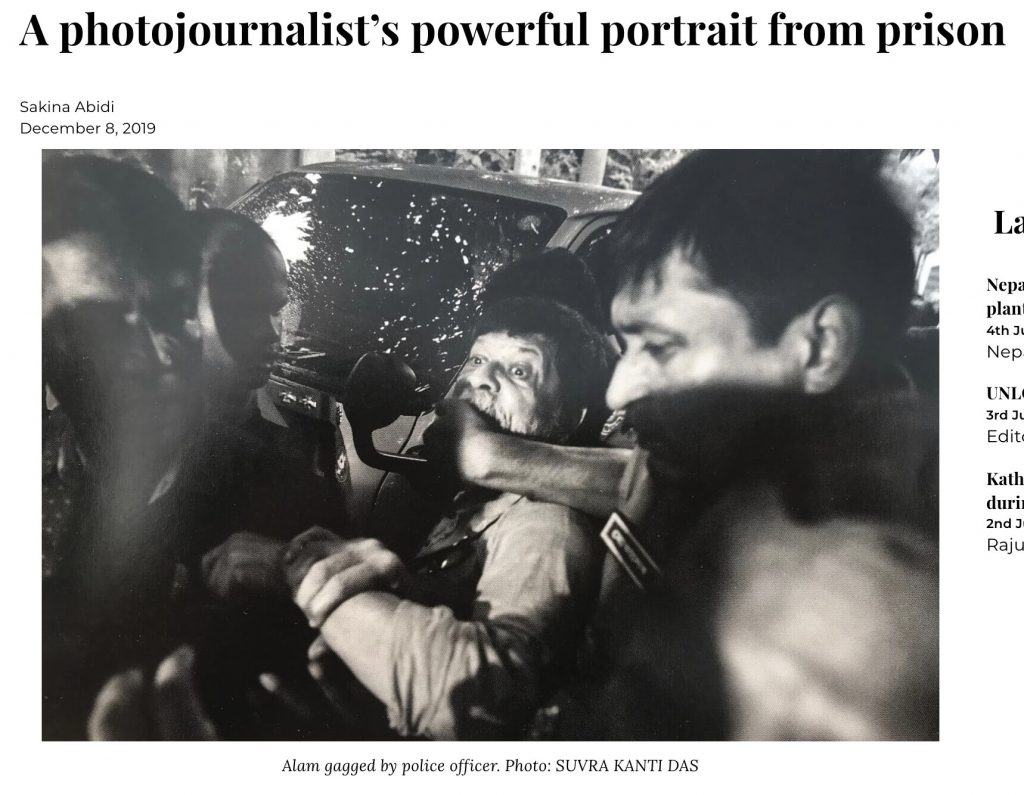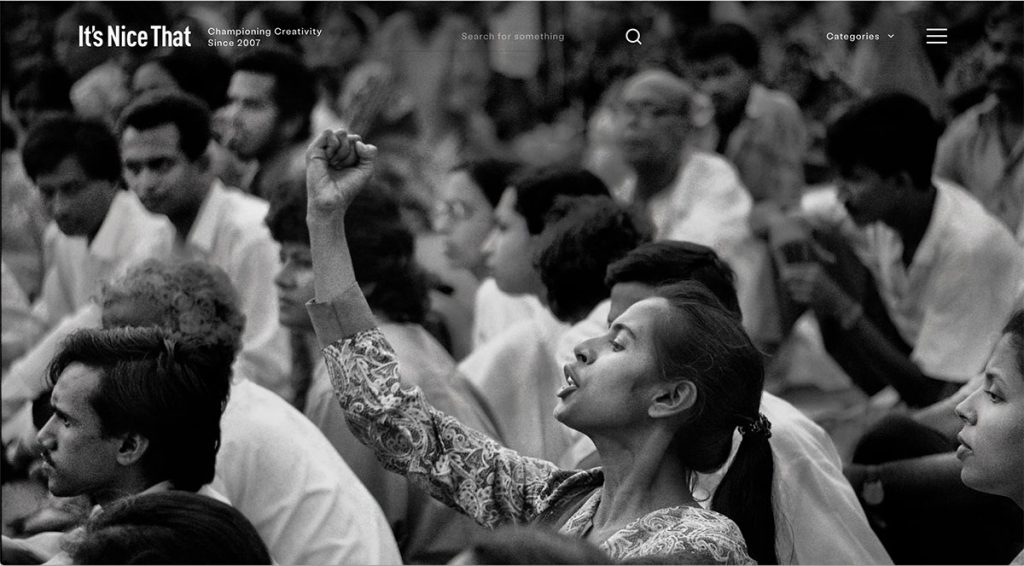
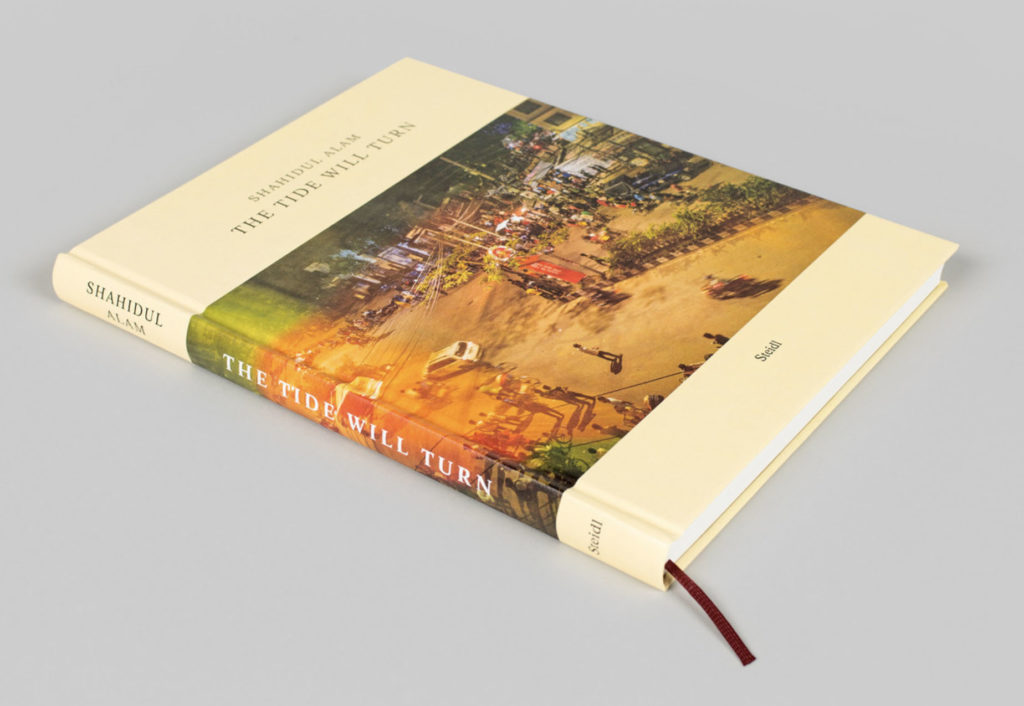
Described by its editor Vijay Prashad as about “the beauty and tragedy of our world, about how to photograph that dialectic, and about how to write about it,” the book comprises four parts: a record of Alam’s time in jail; a chapter each on art and politics, exploring their inevitable interconnectedness; and an exchange of letters between the imprisoned Alam and writer Arundhati Roy, proof of creativity’s endurance even when the state attempts to stifle it. Together, these form a layered critique of autocracy, one underpinned by Alam’s unyielding hope, his conviction that “the tide will turn, and the nameless, faceless people will rise…”
Am I really writing to you? Perhaps not. If I were, I wouldn’t need to say very much beyond, “Dearest Shahidul, no matter how lonely your prison cell, know that we have our eyes on you. We are looking out for you.” If I were really writing to you I wouldn’t need to tell you how your work, your photographs and your words, has, over decades, inscribed a vivid map of humankind in our part of the world—its pain, its joy, its violence, its sorrow and desolation, its stupidity, its cruelty, its sheer, crazy complicatedness—onto our consciousness. Your work is lit up, made luminous, as much by love as it is by a probing, questioning anger born of witnessing at first hand the things that you have witnessed. Those who have imprisoned you have not remotely understood what it is that you do. We can only hope, for their sake, that someday they will.
– See more at: http://southasiajournal.net/the-tide-will-turn-read-arundhati-roys-letter-to-bangladeshi-photographer-shahidul-alam/
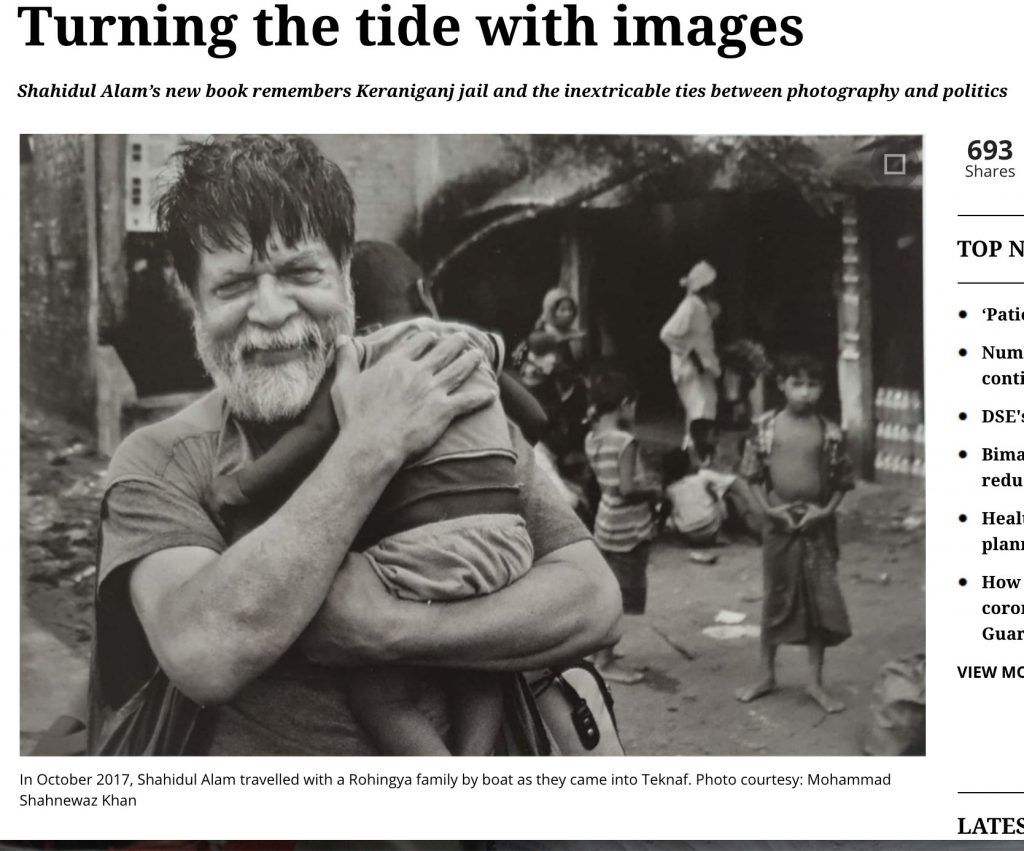
Shahidul Alam’s The Tide Will Turn (2019) is a book of absences. In the aftermath of the road safety student movement in 2018, those of us who followed Alam’s arrest and the ensuing global backlash will remember the letter he received from writer and activist Arundhati Roy. “This particular malaise, this bout of ill health that has engulfed our planet will pass,” Roy insisted in her letter. The book borrows its title from Roy’s indignant hope. In a brief narrative comprised of photographs and text, it touches upon the manifestations of this “malaise” across Bangladesh’s past and present, and highlights how art—photography in particular—has tried to serve recurrently as an antidote.
Shahidul Alam’s Firsthand Account of Bangladesh’s Fight for Democracy
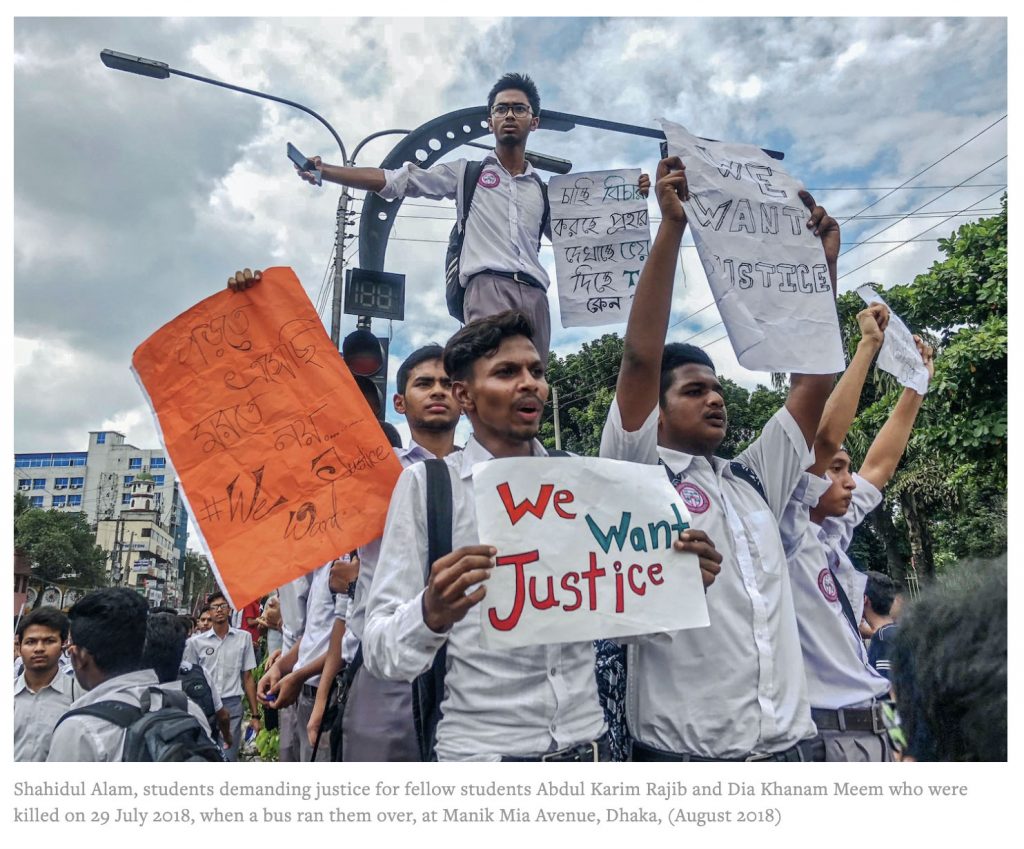
As much as The Tide Will Turn is a collection of photographs tracing the protest movement, it is also a well-researched, firsthand history of contemporary Bangladeshi history. The images Alam has selected draw attention to an array of events in recent Bangladeshi history that led up to the current protests. These protests were set off in 2018 by the hit-and-run killing of two students whose deaths were caused by an overworked bus driver. The government’s poor response to the catastrophe galvanized Bangladeshis to protest decades of government inaction and suppression.
In Nepal, journalists and students protested in front of the Bangladesh Embassy in Kathmandu and lit up the city’s walls with projections of quotes and photographs by Alam during the visit to the Nepal capital by Sheikh Hasina for a South Asian leaders’ summit.
Alam, still imprisoned, was awarded the Photo Kathmandu Award of Excellence on 26 October 2018, both to celebrate the immense impact he has had on generations of Nepali journalists and photographers and as a clear sign of solidarity with one of South Asia’s most prominent photojournalists.
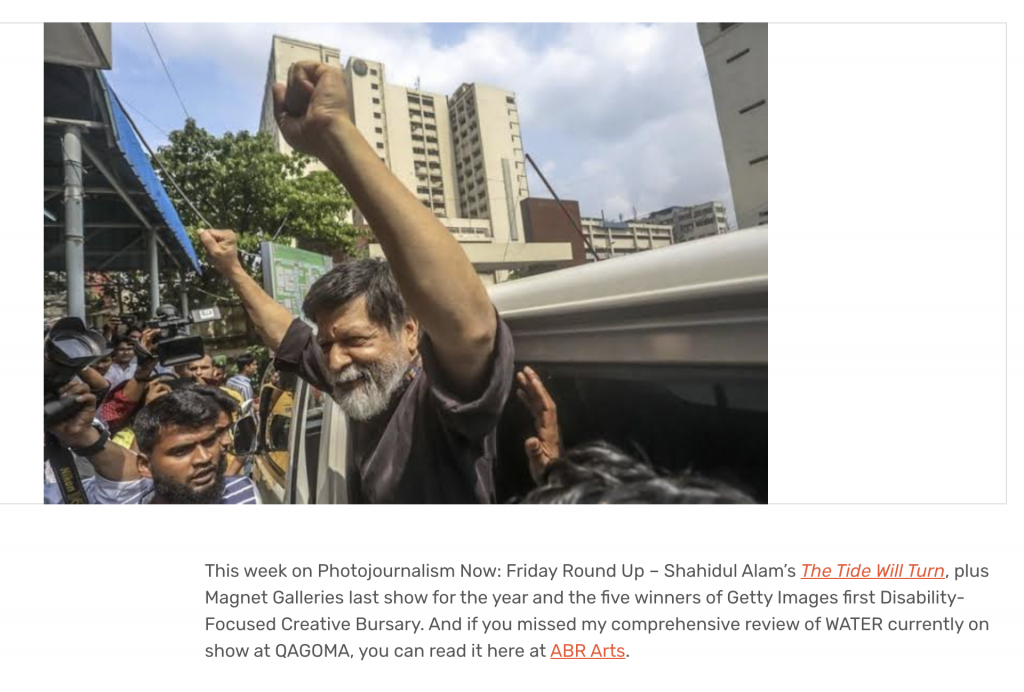
When he was arrested and jailed last year I joined the throng of international voices calling for his release and rejoiced at his freedom 107 days later. One year after his ordeal comes the book The Tide Will Turn. Producing a book in such a short time is an extraordinary feat especially when you factor that since his release Shahidul, who is in his early sixties, has kept to his usually hectic schedule of appearances and talks, travelling the world. Although I should not be surprised as he is one of the most prolific people I know.
This book is a collaborative work that features the voices of many including those who were incarcerated with Shahidul in Keraniganj Jail. It weaves stories of Shahidul’s incarceration with historical moments in Bangladeshi photojournalism, his establishment of Drik photo agency, and also features documentary photographs from Shahidul’s own projects.
Shahidul Alam replies to Arundhati Roy: “Tide will turn, and nameless, faceless people will rise”
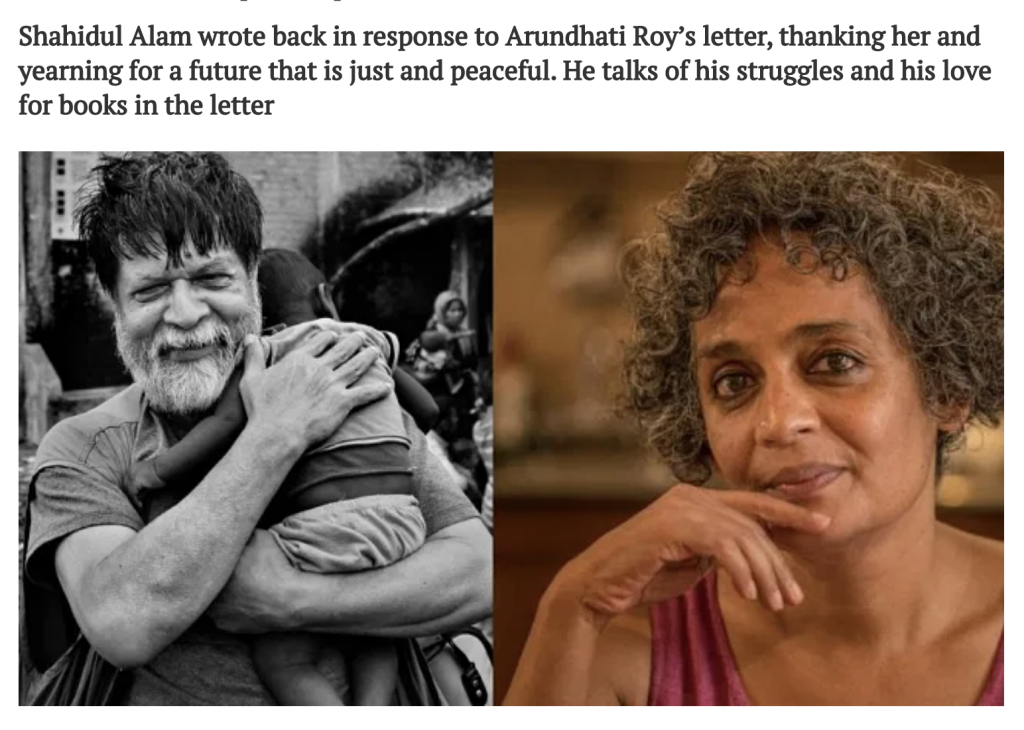
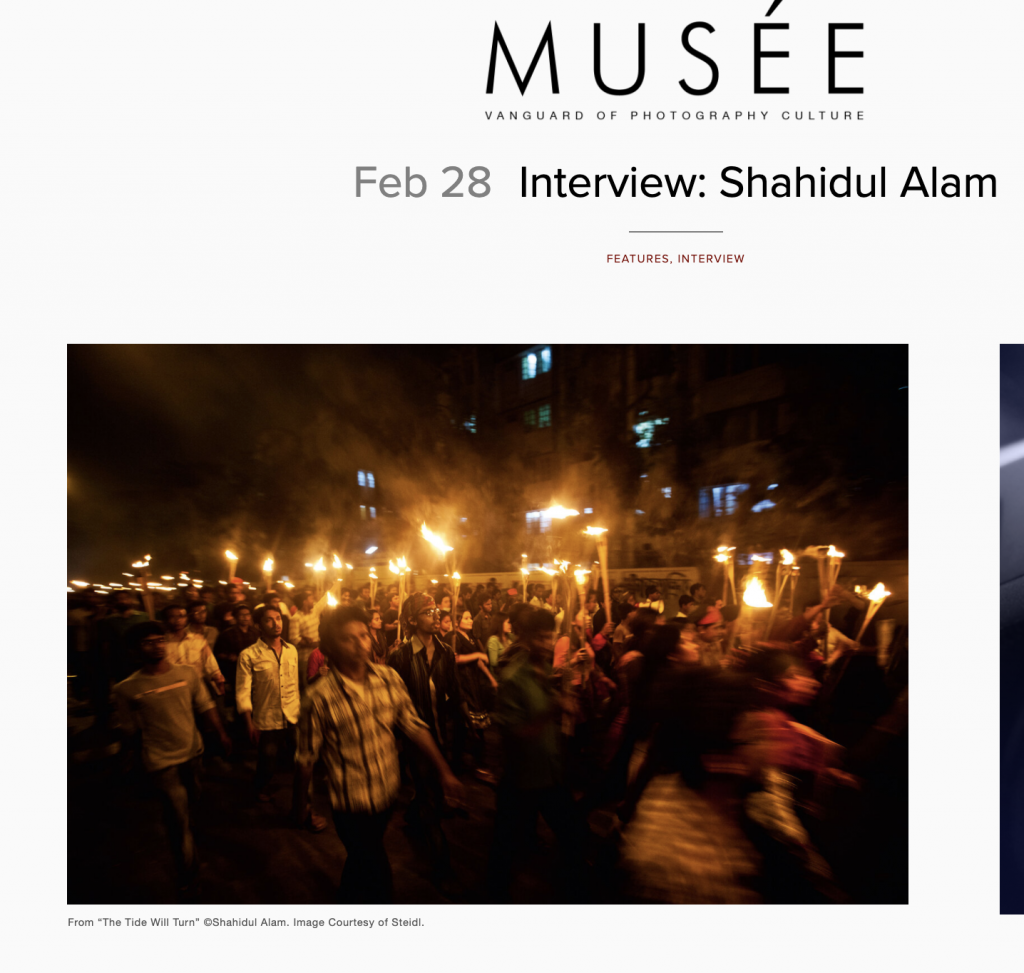
How safe are you right now? I know you were released on bail in 2018 after 107 very interesting days in jail, but are you still facing defamation charges?
No, the charges have not been dropped. I have to be very careful. There are technically no restrictions in my travel but in practice there is always the question of whether when I enter a country, I will be able to get back home. I prefer to ride a bicycle to get places. It’s more functional for the work I do. But, no I have to take a car to get places because its safer that way. I check in with my partner constantly. There are certain ways I’ve adapted. It’s tough but these precautions are necessary and I’ve found ways to proceed with my work under these restrictions.
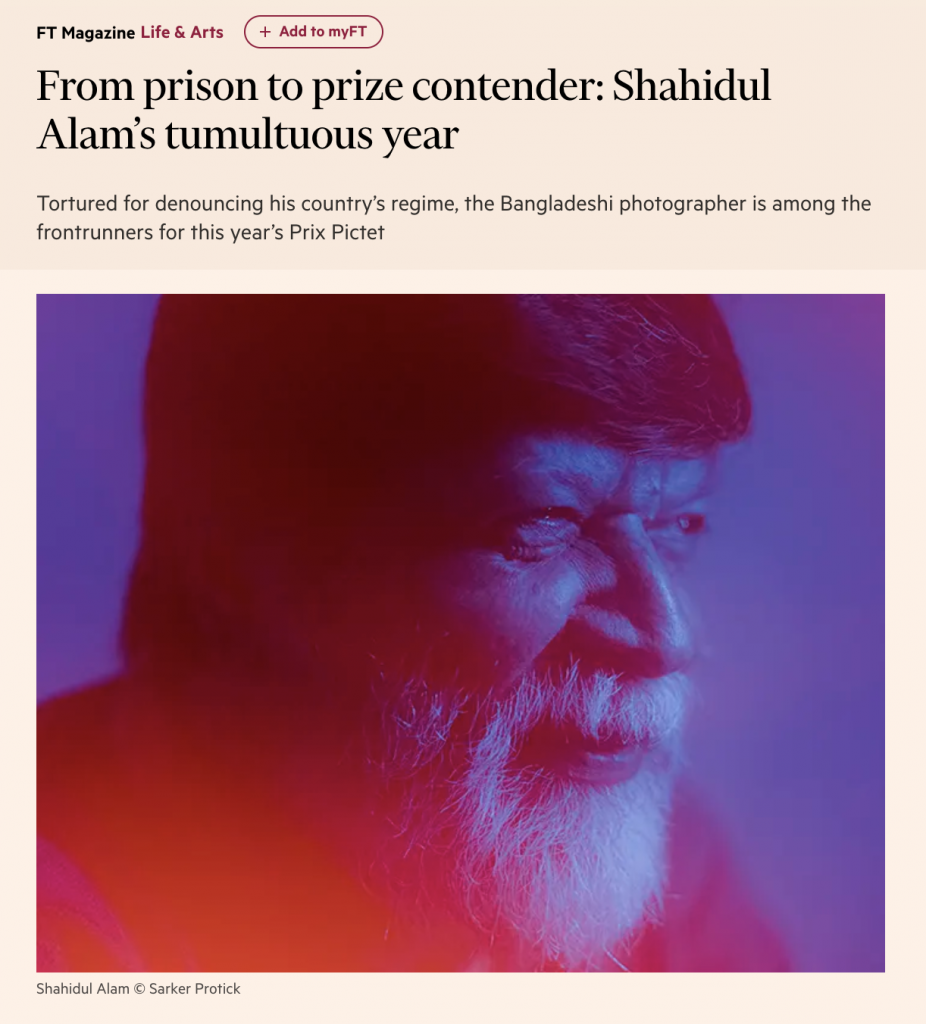
Please use the sharing tools found via the share button at the top or side of articles. Copying articles to share with others is a breach of FT.com T&Cs and Copyright Policy. Email licensing@ft.com to buy additional rights. Subscribers may share up to 10 or 20 articles per month using the gift article service. More information can be found here.
https://www.ft.com/content/371b7b20-efa5-11e9-bfa4-b25f11f42901
The women by the water look like old friends. From their spontaneous grins to the intimacy with which they turn to each other, it is a moment of uncomplicated joy. But behind their smiles lies a less ordinary story. The women are sex workers waiting outside the House of Parliament building in Dhaka, Bangladesh, to hand out condoms for protection against HIV/Aids to fellow workers. The photograph, taken in 1996, is one of the earliest of a body of images by Shahidul Alam, entitled “Still She Smiles”. The series has seen the Bangladeshi photographer, alongside 11 others, shortlisted for the Prix Pictet 2019. This year the subject of the prize is Hope.
